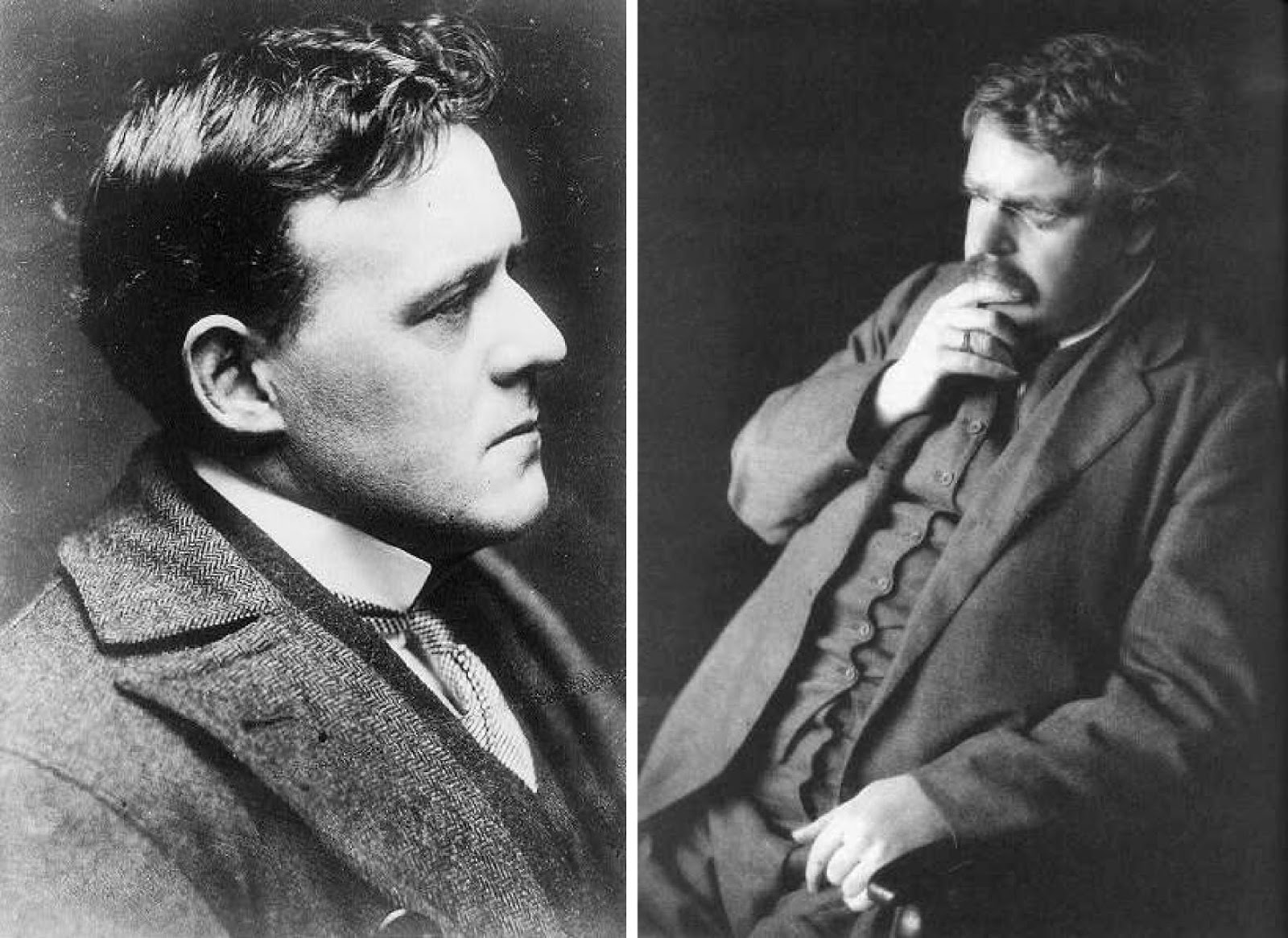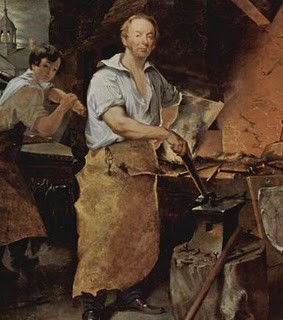From the beginnings of the Industrial Revolution in the late eighteenth and early nineteenth century until the era of the Great Depression immediately preceding the commencement of the Second World War, the most enduring internal conflict within the nations of the West was rooted in what was then called the “social question.” The growth of industrialization and the dispossession of the agrarian peasant classes during the time of the enclosure movement had created within the industrializing nations a massive proletarian class of permanently pauperized laborers and the deplorable social conditions which accompanied the growth of this class.
Throughout the nineteenth century, numerous potential remedies to the condition of the working classes were proposed and the labor, socialist, communist, and anarchist movements developed into powerful political forces during this time. It was into this political and socioeconomic environment that Hilaire Belloc was born in 1870. Belloc was born in France to an English mother and French father and was raised in England. Throughout his eighty-two years of life, Belloc would exhibit many talents. He was an immensely prolific writer (it was once said that he “wrote a library” during his time), poet, and debater. He was an accomplished historian. Belloc was fond of racing yachts and wrote extensively on travel. He was also a politician at one point in his life and for a time held a seat in the English parliament. From his experience as a parliamentarian, Belloc came to regard the pretenses of the liberal democratic state as one rooted in the popular representation of the people as a sham. Parliamentary democracy, in Belloc’s view, was simply a mask for the rule of the plutocratic class. Perhaps above all, Belloc was a staunch defender of Catholic orthodoxy and produced many apologetic works on behalf of his own faith tradition and challenged the secularism of his intellectual contemporaries such as George Bernard Shaw and H. G. Wells. [1]
Though Belloc opposed the secular outlook of the Fabian intellectuals and the more radical Marxists, he shared their concern with solving the problems of labor and the social ills brought about by the industrial age. It was out of this concern that Belloc and his friend, fellow literary figure, and fellow Catholic apologist Gilbert Keith Chesterton formed a unique and always small but intellectually original movement known as “distributism.” The philosophical basis of distributism was outlined in two books, one by Chesterton and one by Belloc. Chesterton’s What’s Wrong with the World was published in 1910. Its thesis was that the paternalistic welfare state proposed by the progressive liberal and social democratic reformers of the era was not inconsistent with the continued rule of the plutocrats. Rather, a welfare state of the kind the Fabians suggested could be utilized by the ruling classes to pacify and further subordinate the working classes. Belloc continued with this theme in his 1912 book The Servile State. Belloc generally accepted the criticisms of capitalism offered by the socialists and Marxists, but argued that socialism would not have the effect of liberating the working classes. Instead, the welfare state would reduce the workers and the masses generally to the level of state dependents with the state continuing to be controlled by the capitalist plutocracy.
 |
| Medieval charity |
Distributism is a concept that is more interesting for its ideas than its influence. It was a tendency that offered an uncompromising critique of capitalism yet firmly rejected virtually all efforts or proposals to remedy the ills of capitalism through bureaucracy and statism. Not only the socialist parties but also the labor unions were criticized by the distributists on these grounds. Belloc, Chesterton, and the distributists shared the concern of classical liberals for the preservation of private property and the liberty of the individual against the state while simultaneously expressing concern for the conditions of labor and related social injustices. Capitalism in their view had the effect of a net reduction in liberty not only because the laboring masses were dependent on the capitalists for their subsistence, but also because capitalism was inherently unstable and therefore necessitated state intervention in order to address its social dislocations. Further, the capitalists and plutocrats themselves preferred state regulation of the kind granting monopoly privileges. Contrary to the supposed laissez faire ideal of capitalism, the actual practice of capitalism went hand in hand with the growth of statism.
 |
| Emancipated women |
Belloc advanced an interesting theory concerning the development of capitalism in England and by extension throughout the world during the Industrial Revolution. He argued that capitalism took the particular form that it assumed during its developmental era largely as a consequence of the dissolution of the monasteries by Henry VIII during the sixteenth century. The monasteries had previously been the basis of cultural, educational, and charitable life in England and their suppression had created a gap in the social fabric whose consequences were made manifest during the early industrial age. First, the disappearance of the monasteries had the effect of removing the social safety net and creating the conditions for state assumption of charitable responsibilities in the way first demonstrated by the Poor Laws and which later found their full fruition in the welfare state. Likewise, the decline in the power and influence of the Church that was the natural result of the closure of the monasteries undermined the ability of the Church to serve as a constraining force on the growing power of industrial capitalists. Lastly, the destruction of monastic life had the effect of creating a spiritual vacuum that would later be filled by the materialistic values of the growing commercial society. [3]
 |
| No longer challenging plutocracy. |
NOTES:
[1] Jahn, Karl (2000). Distributism. Archived at http://karljahn.tripod.com/tan/distributism.htm. Acccessed on October 8, 2012
.
[2] Dorothy Day. Articles on Distributism-2. The Catholic Worker, July–August 1948, 1, 2, 6.
[3] Bradshaw, Brendan (1974). The Dissolution of the Religious Orders in Ireland under Henry VIII. London: Cambridge University Press.
[4] George Orwell. Second Thoughts on James Burnham in Polemic No 3 May 1946.
Originally published in Belloc: Thoughts & Perspectives, Volume Twelve (edited by Troy Southgate) published by Black Front Press.





 del.icio.us
del.icio.us
 Digg
Digg
 Distributisme in de 21ste eeuw
Distributisme in de 21ste eeuw